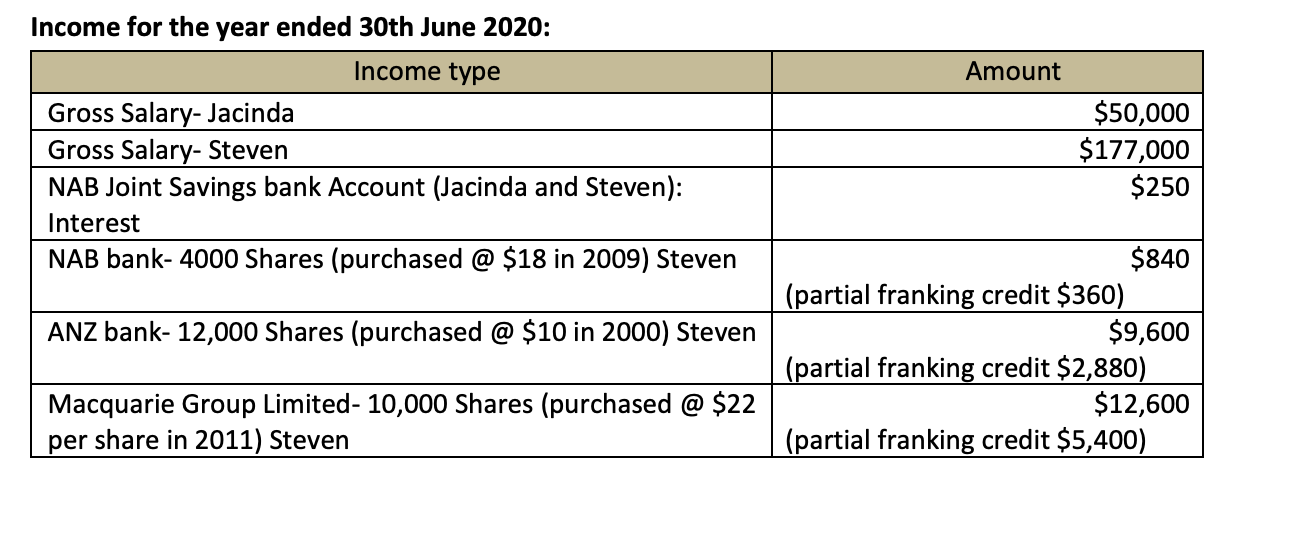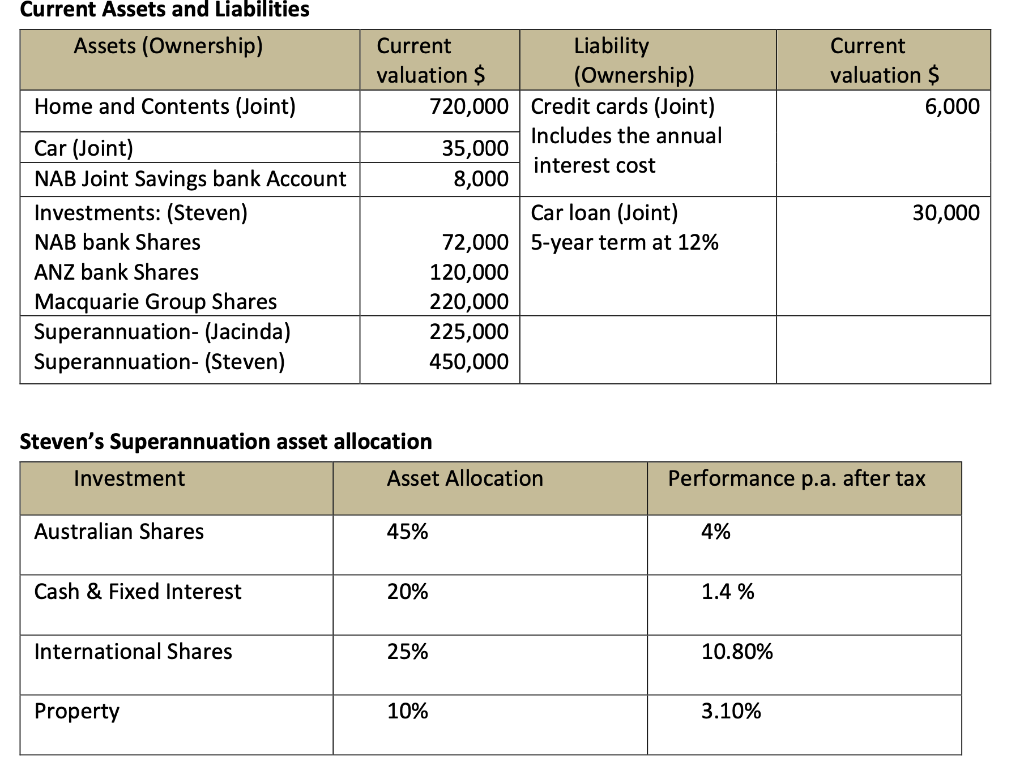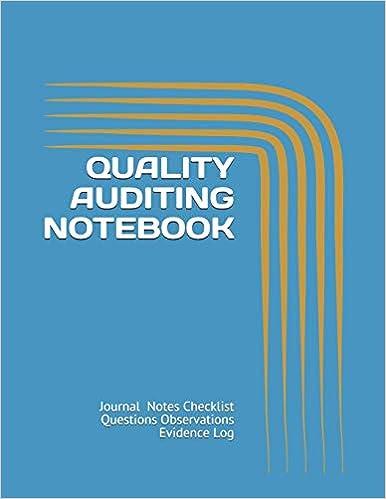Question
You are a financial adviser and the following information is an extract of data you gathered as part of fact-finding during an initial client consultation
You are a financial adviser and the following information is an extract of data you gathered as part of fact-finding during an initial client consultation for married couple Jacinda (aged 38) and Steven (aged 40) Oldham. Jacinda has opted for a part-time teaching assignment with the local school for the last 3 years. Three years ago, she took a career break from her full-time teaching career given growing children. Steven works as a Senior Clinical Nurse Consultant at a local government hospital. They have two children who are aged 12 and 14.
The couple would like to know how much money they will receive after paying tax for the year ended 30th June 2020. They would like advice on how to reduce their tax liability in the future.
The Oldhams have invested over the years in shares of several banks. They have come to you understand how they should invest in the future. Part of this investment is for the higher education of the children. The balance is to buy a property in the country for the postretirement phase.
The Oldhams life goal has been to buy a property in the country and live a quiet life 20 years from now. They have come to you see if they can achieve this goal.


Travelling to and from work- $2,500 (Steven) and $600 (Jacinda)
Donations to registered Charity $2,000 (Jacinda)
Teacher Union Membership (Jacinda)$1,000
Required: 1. Calculate Jacindas and Stevens after-tax income for the year ended June 30th, 2020. For calculation, assume the figures are of the year 2019-20.
Explain how Jacinda and Steven could reduce their tax liability by splitting their income. Show the effect (calculation) this strategy would have had, if they had split income for the tax year ended 30 June 2020.
Amount Income for the year ended 30th June 2020: Income type Gross Salary-Jacinda Gross Salary- Steven NAB Joint Savings bank Account (Jacinda and Steven): Interest NAB bank- 4000 Shares (purchased @ $18 in 2009) Steven $50,000 $177,000 $250 ANZ bank- 12,000 Shares (purchased @ $10 in 2000) Steven $840 (partial franking credit $360) $9,600 (partial franking credit $2,880) $12,600 (partial franking credit $5,400) Macquarie Group Limited - 10,000 Shares (purchased @ $22 per share in 2011) Steven Current Assets and Liabilities Assets (Ownership) Current valuation $ 6,000 Current Liability valuation $ (Ownership) 720,000 Credit cards (Joint) Includes the annual 35,000 interest cost 8,000 Car loan (Joint) 72,000 5-year term at 12% 120,000 220,000 225,000 450,000 Home and Contents (Joint) Car (Joint) NAB Joint Savings bank Account Investments: (Steven) NAB bank Shares ANZ bank Shares Macquarie Group Shares Superannuation- (Jacinda) Superannuation- (Steven) 30,000 Steven's Superannuation asset allocation Investment Asset Allocation Performance p.a. after tax Australian Shares 45% 4% Cash & Fixed Interest 20% 1.4 % International Shares 25% 10.80% Property 10% 3.10%Step by Step Solution
There are 3 Steps involved in it
Step: 1

Get Instant Access to Expert-Tailored Solutions
See step-by-step solutions with expert insights and AI powered tools for academic success
Step: 2

Step: 3

Ace Your Homework with AI
Get the answers you need in no time with our AI-driven, step-by-step assistance
Get Started


